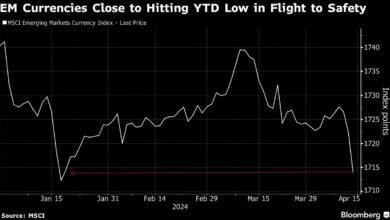Iranian Lawmaker Slams Central Bank as Currency Crisis Deepens

Criticism of Iran’s Central Bank is continuing as one lawmaker takes aim at its failure to provide necessary foreign currency for raw material imports, exacerbating the country’s currency crisis.
“The Central Bank tells producers that it has no currency,” Sodeif Badri, a conservative politician and former Mayor of Ardabil said shedding some light on shortages impacting the nation’s industrial sectors.
Commenting on the Iranian currency’s continued depreciation, Badri said “the currency market is currently in complete disarray.”
The lawmakers’ concerns highlight the broader issues stemming from the country’s economic policies amid decades-long internal mismanagement and the weight of international sanctions.
On the surface, the Iranian government has attempted to manage the devaluation of its currency by providing foreign currency at cheaper exchange rates to importers of essential goods.
Last month, the country’s Expediency Discernment Council gave authorization for the state and its management apparatuses, including the Central Bank, to spend 13.6 billion euros at a preferential exchange rate.
In an effort to mitigate the severe economic pressures facing the country, this allocation is earmarked for the import of basic items such as agricultural products, medicine and its raw materials as well as medical equipment.
The policy appears to be aimed at protecting Iranian consumers from potential spikes in prices due to currency fluctuation.
But, the disparity between the official exchange rate of 285,000 rials per US dollar and the open market rate of approximately 650,000 rials per dollar underlines the deepening economic disparity.
Recent scandals, notably the case involving Debsh Tea company, have further fueled existing distrust in the system.
The Debsh company reportedly misappropriated a significant portion of subsidized currency meant for tea and machinery imports.
The embezzlement, estimated at $3.5 billion, involves officials from both the current and the previous presidential administrations — including ministers of agriculture, industry as well as the governors of the Central Bank of Iran and the chiefs of Iranian Customs Administration.
“It is unclear what the Central Bank is doing; the Central Bank must answer to the people,” Badri remarked, further demanding actions from the nation’s financial regulators.
Source link




